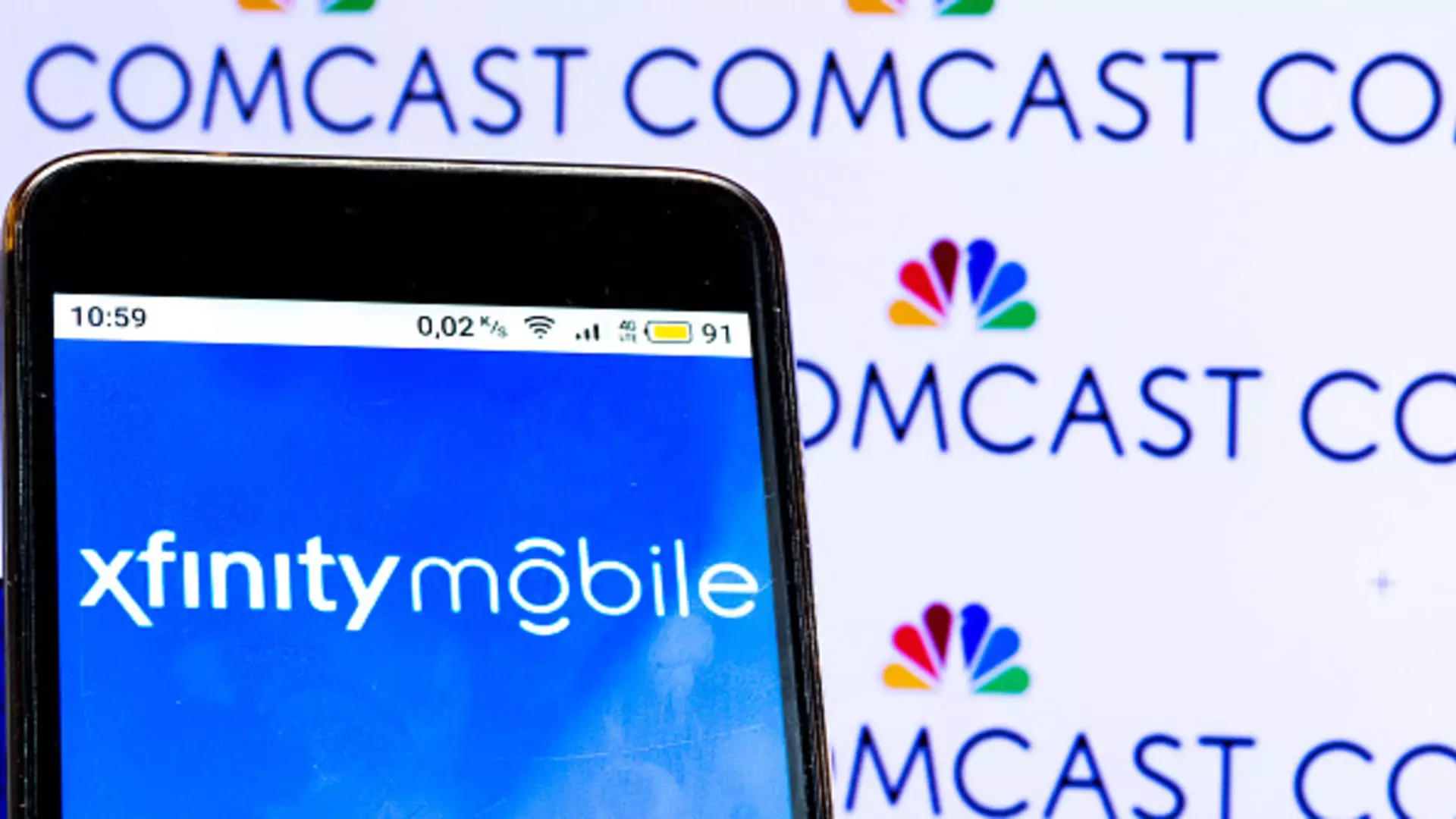In an era where branding extends beyond mere logos and catchphrases, the rebranding of the Wells Fargo Center to the Xfinity Mobile Arena in Philadelphia represents a strategic pivot for Comcast Spectacor and its partners. This transition, aimed at consolidating the Xfinity brand with the essence of Philadelphia’s vibrant sports culture, hints at broader corporate dynamics at play. It is more than mere nomenclature; it symbolizes a company’s ambition to stake its claim in an increasingly competitive mobile telecommunications market. As one looks at the environment in which this decision was made, it is hard to ignore the implications—both positive and negative—of this move.
Corporate Interests vs. Consumer Experience
On the surface, the upgrade to Xfinity’s Wi-Fi infrastructure is a commendable effort to improve the game-day experience for fans. However, a deeper critique reveals that this may just be a smokescreen for Comcast’s attempts to pivot away from its stagnating cable business. While introducing modern conveniences can enhance a web of customer loyalty, the anxiety produced by the corporation’s lacking vision in traditional services complicates the narrative. Will newly acquired mobile customers feel valued in an environment where their enjoyment seems secondary to corporate objectives? This name change could transform the arena into a platform not just for sports, but for advancing a telecommunications agenda.
The Financial Veil: What Isn’t Being Said
While the financial details of the deal remain undisclosed, market watchers can’t help but speculate on the long-term consequences. It’s essential to consider that this rebranding may not only be an opportunity for increased customer engagement but could also pile on more debt to an already burdened corporate entity. The $400 million renovation underscores a commitment to aesthetics, yet it prompts questions about long-term profitability. In an age where trust in corporate motives is dwindling, the silence around financial specifics raises eyebrows. Are we witnessing the birth of a façade cleverly designed to perpetuate a struggling business model?
The Fan Factor: Local Sentiment and Corporate Schemes
Philadelphia sports fans are renowned for their passion, and intertwining corporate identity with this fervor raises ethical questions. Can a genuine fan experience coexist with aggressive brand promotion? When every corner of the arena becomes a showcase for corporate interests, does the spirit of camaraderie among fans dilute? Utilizing the emotional connection that the city’s teams foster, Comcast is strategically betting that this association will buoy their more dubious corporate maneuvers. However, while some may relish the updated arena experience, disillusionment may slowly creep in for those who sense that they are merely pawns in a corporate strategy.
The Competition: A Battle in the Mobile Arena
The fierce competition in the mobile telecommunications landscape demands innovation and adaptation. Comcast’s decision to initiate a more aggressive positioning in this arena is undeniably strategic, yet one can’t help but perceive it as an act of desperation. The company’s previous reliance on broadband customers as a bulwark against dwindling revenues in cable television points to a reactive rather than proactive business strategy. As Charter and other competitors advance into the mobile space with promotional offers and compelling bundles, Xfinity’s decision to attach its brand to a sports arena might feel more like a gamble than a calculated risk.
Cultural Misalignment: The Brand Versus the City
Finally, in this heady mix of commerce and culture, one must recognize that the identity of Philadelphia is multifaceted. The essence of its sports teams and their fans encapsulates hard work, resilience, and raw passion—qualities that can often contrast sharply with the cold calculus of corporate branding. Xfinity’s symbolic takeover risks alienating a segment of the population that sees this shift as a blatant commodification of their beloved city and its values.
In navigating this complex landscape where identity, corporate interests, and fan loyalty intersect, the Xfinity Mobile Arena stands not just as a newly branded venue but as a case study in modern corporate strategy. The question becomes not only how this rebranding will affect the venue’s atmosphere but also how it reflects our collective acceptance—or rejection—of corporate encroachment into our cultural spaces.

